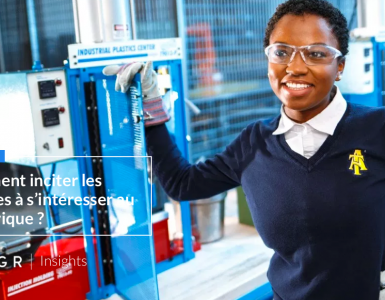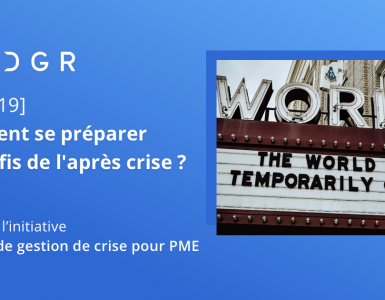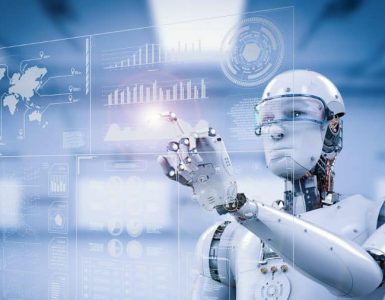With the current climate of change and uncertainty, there is an unfounded perception of technology and its influence on future labor-market.
The fourth industrial revolution is now a reality that is hard to ignore and subtly sneaks into more aspects of our lives than we realize at first glance. This new era is marked by the speed of changes and encompasses concepts from robot automation to more abstract ideas such as IIoT (Industrial Internet of Things) or Big Data.
“A recent global PwC survey found that 37% of workers were worried about the possibility of losing their jobs due to the expansion of automation.”
In this article we will shed some light on the biggest misconceptions regarding what the potential future led by technology could be shaped like.
Firstly, let’s clarify that automation will not replace all jobs. Job displacement does not strictly translate into job substitution but rather into some form of relocation. This concept addresses a change in the structure of jobs as overpowered by technological advances, with the opportunity of new jobs emerging from these changes. Technology will inevitably invade our industries, and, as it becomes more affordable, our lives.
Technology replacing monotonous jobs was the basis of past industrial revolutions, which triggered economic growth, hence the answer here lies within its management. Nevertheless, companies already embracing these technologies have soon come to realize the effectiveness of their usage hand in hand instead of opposed to humans, mainly due to their requirement for supervision. There is a queue for new jobs such as ‘bot trainer’.
New job openings will be required to maintain the newer technology, particularly jobs regarding maintenance and programming. Other openings will arise from new needs -specifically in the service sectors, but the main focus for which humans will not be left jobless lies within humanity in itself. Certain aspects such as creativity will never be replicated with a computer program.
More specifically, we can address the manufacturing sector, as it seems to be the most susceptible to change. 3D printing, automation, and robotics represent mass production tools that allow customization within a broader range as well as production to be located closer to the customer, further cutting transportation and storage costs. However, the tasks that will be taken over are mainly mechanical monotonous ones that, by being automated, allow for the enrichment of jobs, now focused on more challenging activities. In cases in which the jobs will be replaced, the labor force that once occupied them will certainly need retraining, which is likely to be one of the biggest investments companies will be making in the foreseeable future.
The HR department will be specifically targeted as the hiring model will shift from achievements to potential, given the perpetual need for improvement that is implied within this field. There are two sides to the changes that this department will have to embrace. Firstly, Human Resources will increasingly become less reliant on AI for deep analysis since automated programs can’t detect nor evaluate abilities regarding social skills and people management. Complex problem solving, cognitive flexibility, critical thinking and creativity will become increasingly relevant, which leads us to the flip side of the coin: AI and robotics ease, through face recognition, video decoding, and other techniques identification, lying detection and cognitive evaluation, eliminating human biases, but also improving initial screenings of candidates, training processes and coaching techniques.
Furthermore, preference for human ‘touch’ will become the determining factor for which jobs will be taken over or not by AI. since productivity will certainly experience a boost with the automated alternatives. During past industrial revolutions robots took over manual labor however, with the current advances in technology, the newly conquered territory is that one of analytical thinking. For the above mentioned, even average low positions will need to foresee an increase in the demand for the expanse of their expertise. Not only a more complex technical knowledge will be required, but emotional intelligence will further surface amongst the more relevant facets, given that it will become the distinguishing block between automated jobs and those more prone to human labor. Moreover, new jobs will heavily rely on empathy, interpretation and other human skills. Here lies the irony of the fourth industrial revolution, it’s propelled by technological advances, but driven by human qualities.
One of the biggest current risks lies in businesses not being prepared for the future that this revolution holds. According to Deloitte’s study in which 1600 high-level executives from 19 different countries were interviewed, the outlook is not a very positive one given that only 14% of executives feel prepared to take advantage of the changes associated with the industry 4.0. In addition, only 25% of executives think they have the correct workforce and abilities to face industry 4.0 yet the overall consensus was depicting a future in which industry 4.0 did not present overall powerful changes, as perceived by the interviewees, which is a dangerous approach considering how disruptive technology is.
The follow-up question now reads: how can we prepare our businesses and workers? The answer may lie with collaboration across companies within the same industries due to cost-productivity. Government aid might also help to promote the development and incorporation of both forces into the workplace however, it will ultimately remain as a training investment from companies and, hopefully, the education system.
In conclusion, technological advances are both an opportunity and a risk depending on the situation and context that you apply it to. With careful management, mainly regarding preparation, we can thrive and take advantage of this new technological era, just like we did with the past ones!






